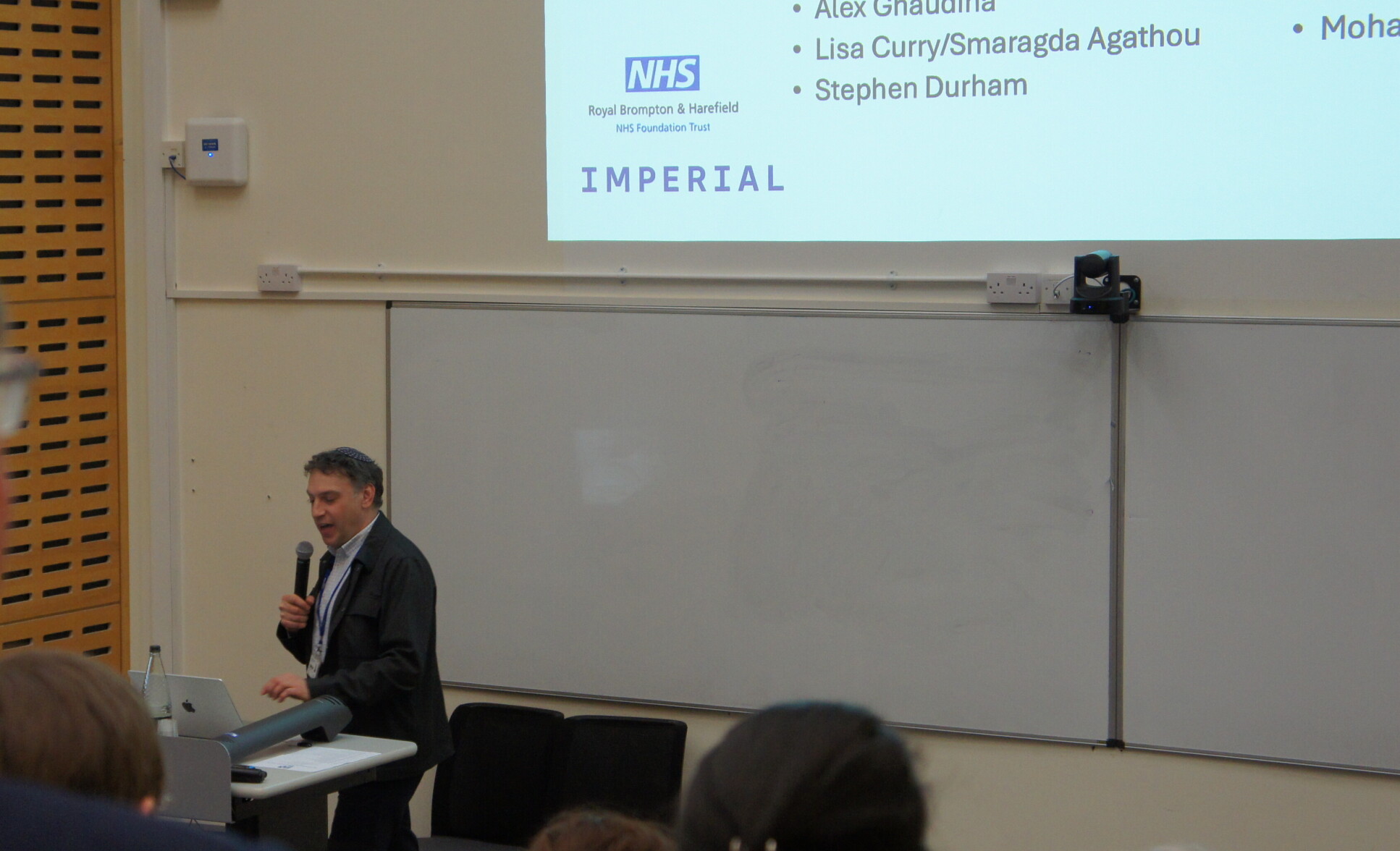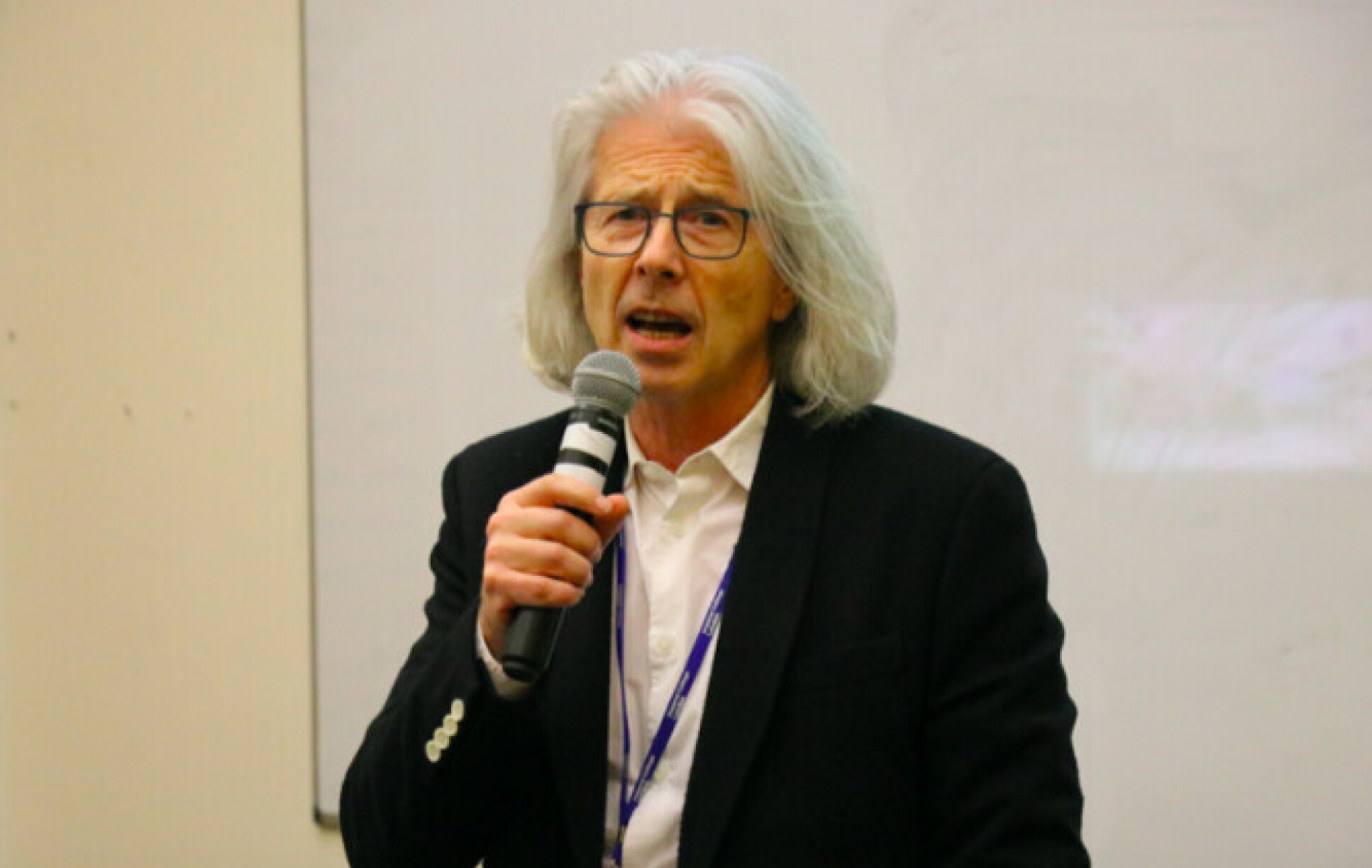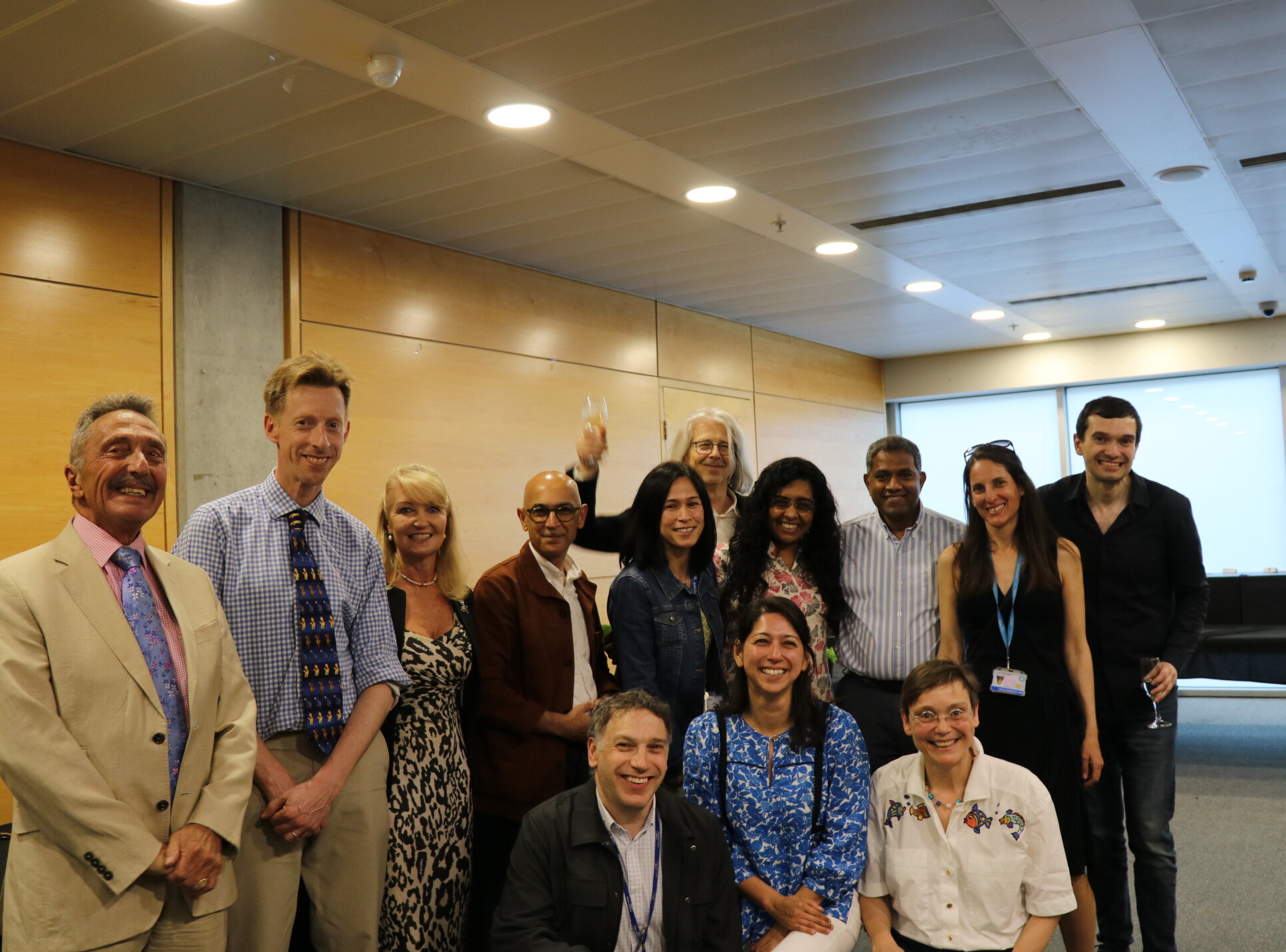New Imperial centre aiming for a world free of allergy and asthma
by Ruth Ntumba

The Frankland-Kay Centre for Allergic Diseases, dedicated to advancing allergy research, launched on Monday 20 May 2024.
The Frankland-Kay Centre’s mission is to reduce the impact of allergies on affected people and their families. Built on a rich legacy of groundbreaking work at Imperial and based at the National Heart and Lung Institute (NHLI), it is named after two pioneers of the field: Dr William (Bill) Frankland and Professor Barry Kay.
The Centre brings together a diverse and interdisciplinary team of experts from Imperial, as well as St Mary’s Hospital and Royal Brompton Hospital, creating a powerhouse of clinical and experimental research. This collaborative team will work to tackle some of the most pressing challenges affecting people and patients, ultimately working towards a world free of allergy and asthma.
Speaking at the launch, Dr Paul Turner, Reader in Paediatric Allergy and Clinical Immunology at Imperial College London and a Clinical Research Lead within the Centre, said: “When we consider that one in three people in the UK have allergic rhinitis and one in five have eczema, there are many people who need our support. Our ability to integrate clinical research with the latest laboratory science technologies and new data science approaches is a fundamental strength of this Centre.”
By bringing together the strengths of our paediatric and adult clinical research teams with state-of-the-art experimental research laboratories and cutting-edge data science, the Centre aims to advance understanding and treatment of these conditions.

Commenting on the launch of the Centre, Professor Adnan Custovic, Professor of Paediatric Allergy at Imperial and the Centre Director, said: "The Frankland-Kay Centre is a holistic center dedicated to understanding the mechanisms of allergic diseases, with the goal of creating a world free from these conditions. These diseases were extremely rare 150 years ago, in contrast to today, so surely we can work towards reversing this increasing trend and eliminating allergies and asthma.”

“To achieve this, we have adopted a team science approach, which requires input from our colleagues in mathematics, bioengineering, computer sciences and epidemiology – fields in which Imperial excels – to make our work possible.”
The launch gave attendees the opportunity to see the real-time impact of the National Heart and Lung Institute’s research on allergy, including its collaboration with the Natasha Allergy Research Foundation. The £2.5 million trial, funded by the Foundation, uses daily doses of everyday food products, taken under strict medical supervision, rather than expensive medicines, to train the bodies of children and young people with food allergies to tolerate an allergen. This approach – known as oral immunotherapy (OIT) – works to allow children living with food allergies to avoid allergic reactions if they eat something which accidentally contains the food allergen, for example, due to cross-contamination.
Origins of allergy research
The origins of allergy as a clinical and scientific discipline can be traced back to the early 20th century at St Mary’s Hospital, where Drs Leonard Noon and John Freeman pioneered allergen immunotherapy, revolutionising the treatment of hay fever. Their innovative approach laid the foundation for modern allergy treatments.
In the mid-20th century, Dr Bill Frankland, often referred to as the "Grandfather of Allergy," significantly advanced the field, transforming the understanding of allergies and their impact on health. His work was instrumental in developing new therapies and public awareness about allergies.
Building on this legacy, Professor Barry Kay's pioneering research in the latter part of the 20th century unveiled the underlying mechanisms of asthma, establishing the importance of T lymphocyte and Th2 immune mechanisms in asthma and allergy. This work provided crucial insights into both allergic and non-allergic forms of asthma, profoundly influencing subsequent research and treatment strategies and paving the way toward the development of biologics which transformed management of severe asthma.
Today, Imperial and the NHLI are recognised globally for their excellence in allergy research, ranking second in the world according to the Center for World University Rankings.

Allergy research at the NHLI has focused on understanding the origins, natural history, and mechanisms of allergic diseases and asthma throughout a person's life. The NHLI has worked to enhance prevention strategies and translate research findings into tangible patient benefits. With the understanding that asthma and allergic disorders are diverse, research has aimed to provide personalised, mechanism-based treatments and preventive measures for patients.
Closing the launch event, Professor Adnan Custovic, said: On a personal note, I wish we were opening our new Centre with Bill and Barry present. That said, they are with us in the hearts and minds of those they have touched throughout their careers.”
Article text (excluding photos or graphics) © Imperial College London.
Photos and graphics subject to third party copyright used with permission or © Imperial College London.
Reporter
Ruth Ntumba
Faculty of Medicine Centre
